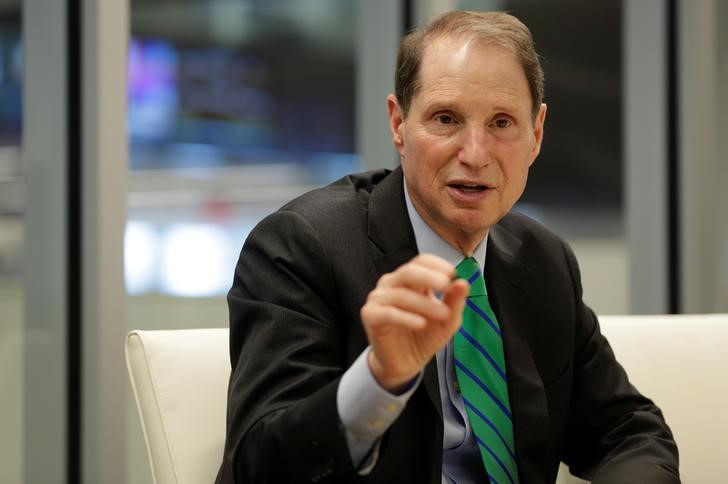By Ginger Gibson
WASHINGTON (Reuters) - Democratic Senator Ron Wyden thinks Republican leadership is moving away from trying to implement full-scale tax reform this year and instead are turning their attention to simply cutting rates.
"If you look at the language of Mitch McConnell in the last couple of days, he’s talking about tax cuts, he’s been saying, ‘Well, I don’t know about tax reform, let's have a tax cut,'" Wyden, the top Democrat on the Senate Finance Committee, said in an interview with Reuters on Friday.
"To me that would really be, again, contrary to what the president campaigned on," he said.
McConnell is the Senate majority leader.
Sweeping tax reform had been high on the Republican legislative agenda. But so far, House of Representatives and the Senate, both controlled by Republicans, have been unable to find consensus on a tax package that could pass both chambers and be signed into law by President Donald Trump.
Wyden argued there is robust bipartisan agreement that a tax overhaul is needed.
"There are plenty of Republicans in Congress - because they talk to me - who would really like to do major tax reform," he said.
Last month, the White House weighed in on the tax discussion, offering only a one-page plan that included deep cuts in rates, many for businesses, but stopped well short of legislative language or providing detail on specific changes.
"The tax reform proposal is shorter than drug store receipts I have," Wyden remarked.
Several lawmakers have warned that if tax reform is not completed by the end of 2017, it will become more difficult to pass in 2018, when Congressional midterm elections will be held.
The House has begun holding hearings and has developed a "blue print" - including a controversial border adjustment tax proposal that would tax imports while providing credit for exports.

Wyden, in an echo of other senators, including Republicans, said that a border adjustment tax would be unlikely to fare well in the Senate - going so far to call it a "grocery tax" that would unfairly hit consumers in the middle class.